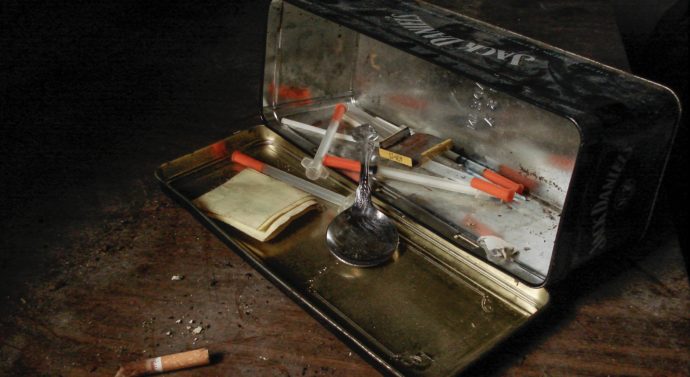
Punishment or rehabilitation? How to handle the overdose crisis in Springfield
Editorial November 1, 2019, Comments Off 34“This is an all hands on deck situation,” wrote State Representative Crystal Quade on Facebook on October 17. She was referring to the 20 overdose cases in Springfield that all occurred within one 24-hour period in the middle of October. Since the time of that Facebook post, the number has risen to over 40 overdoses and four deaths in nine days in Springfield alone.
The overdose spike came without warning and all at once, with sirens wailing at all hours of the day and night as authority rushed to save as many lives as possible. There has been speculation that the death toll is a result of a bad batch of untested heroin arriving in Springfield recently, with unknowing victims not knowing how to test their product to ensure its relative safety.
Since the time of the overdoses, the Springfield community has responded with messages of support and safety. Across social media and in official statements, the Springfield-Greene County Health Department has reiterated their stance that addiction is “a complicated and difficult-to-overcome disease.”
Health Department Director Clay Goddard said in a press release: “The conversations we will have to have in our community in light of this response will be uncomfortable for some. This is a disease with horrible consequences for the person suffering as well as the people around them. But the idea that we can tell people just not to use is unrealistic. We have to meet people where they are and treat them with compassion and respect.”
The Harm Reduction Coalition, a national organization dedicated to combatting stigma against drug use, offers this advice to those struggling with addiction:
- Don’t use drugs alone – if you are going to use dangerous drugs like heroin, stagger use in a group or make sure someone is able to check on you.
- Don’t lock the door – keep the door unlocked or ajar if you plan to use. Police executing a raid won’t care if the door is locked, and help can’t arrive quickly if you have locked yourself in when you have an overdose.
- Have Narcan on hand – Narcan is available at many pharmacies.
Narcan is available at the Springfield Recovery Community Center, which also offers training on how to use it. You can direct message the center on Facebook to have someone meet you at the center, which is located at 1925 East Bennett Suite J.
“We aren’t saying anyone should use illegal substances,” said Dr. Jacob Spain, Mercy ER physician and medical director for the Springfield Fire Department, in a press release. “What we are saying is if you are using drugs, the goal is for you to immediately seek treatment and stop using. If not, then until that time, we want you to use as safely as possible until you are willing to make the decision to stop.”
Decriminalizing Drugs
Despite all the support from medical professionals surrounding drug use and abuse, there remains an enormous stigma against those who struggle with addiction. Often, drug users who find themselves in dangerous situations hesitate to seek medical attention, and that hesitation can and does cost lives. They fear the harsh legal consequences that come with the disastrous War on Drugs. Not only that, but such threats of punishment often turn people away from paths to health, such as rehabilitation services.
The best way to address this issue of addicts fearing the law more than potential death is to decriminalize the use of all drugs in our society.
This does not mean legalizing all drugs. Hard drugs such as methamphetamine and heroin must always remain illegal to buy and sell, due to the horrendous effects they have on the body and mind. In Colorado, Oregon and Alaska, the use of marijuana increased following those states’ respective legalization of the softer drug. It is reasonable to suspect that legalization of hard drugs like heroin would result in similar statistics.
When I say decriminalize, I am referring more to how law enforcement deals with users of substances like meth and heroin. Dealers and drug rings may still be targeted in an effort to reduce the flow of these dangerous substances, but drug users must be viewed as what they are: people who are suffering from the disease of addiction.
Decriminalization of heroin in Missouri would result in people being able to use such drugs in safer ways. There is no way to stop someone from using heroin if they want to. Allow for drug education that can help someone identify a bad batch of heroin or learn how to inject safely. Allow groups to meet and provide safety in numbers, with designated sober friends watching out for their tripping buddies.
People should not be arrested for having a disease. They deserve help in the form of community support and, if necessary, rehabilitation. Drug-related prison sentences should be reserved for unlawful dealers or those who encourage use near schools or public areas. In the wake of 40 overdoses here in Springfield, it is time for law enforcement to consider if they care more about punishment or rehabilitation.
Article written by Forest Swisher